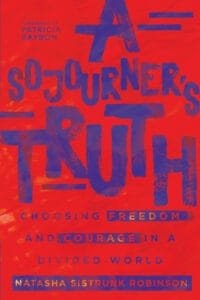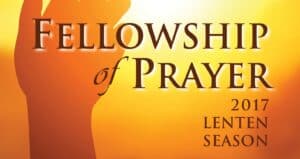 In Norman Wirzba’s wonderful book Food and Faith: A Theology of Eating he comments: “Eating is about extending hospitality and making room for others to find life by sharing in our own…. Eating is an invitation to enter into communion and be reconciled with each other. To eat with God at the table is to eat with the aim of healing and celebrating the memberships of creation…. Food is a gift to be gratefully received and generously shared.” (11)
In Norman Wirzba’s wonderful book Food and Faith: A Theology of Eating he comments: “Eating is about extending hospitality and making room for others to find life by sharing in our own…. Eating is an invitation to enter into communion and be reconciled with each other. To eat with God at the table is to eat with the aim of healing and celebrating the memberships of creation…. Food is a gift to be gratefully received and generously shared.” (11)
Reflecting on this statement as we emerged from the pandemic and started doing hospitality again, brought back many memories for me of meals shared and friendships forged. Hospitality has become one of the most important aspects of my life and its loss over the last couple of years has been a challenge that has left me feeling disconnected, not just from friends and family but from the wonderful worldwide community of God’s people.
I still remember vividly when, several years ago, our good friends Melody and Gil George cooked a wonderful Ethiopian meal for us. The delicious hot and spicy sauces were spooned onto platters spread with layers of the Ethiopian flatbread injera. More mounds of injera dotted the table waiting for us to tear off pieces with our fingers so that we could scoop up the wonderful berbere flavored wots. By the end of the meal, all that remained on the platter were broken pieces of injera soaked with the remains of the sauces.
As we gathered the empty platters I was struck by how much this meal must have resembled meals Jesus ate with his disciples and those other friends of his – the tax collectors and prostitutes. Bread was far more than an adjunct to their meals, far more than a commodity to be purchased at the supermarket, it was the very heart of their shared life together. The bread was broken so that people could share together the nourishment they needed to sustain life. And as the bread was broken there was implicit in the act, a sharing of hospitality, of togetherness, and of community. Anybody who ate from their table, friend or stranger, rich or poor, young or old would enter into this shared community.
In his most recent book Agrarian Spirit, Norman Wirzba compares bread as a commodity we buy to bread as a miracle of creation. He says” But for those who know better, bread is something of a miracle because they understand that there is no bread without grain, no grain without seeds, no seed germination without fertile soil, no fertile soil without billions of microorganisms, no plant growth without sunshine and rain, no vitality without plant health, no grain fields without farmers and farm communities, no dough without the creativity of bakers and no life without God’s animating breath circulating through all of it. (90)
As I thought about this, I was suddenly overwhelmed by the feeling that in eating a home-prepared and cooked meal together we had shared in the communion of Christ’s body. It is something we have all been starving for over the last couple of years. Not only have we stopped sharing bread and wine at communion in many of our churches, we have often also stopped sharing meals together with friends and strangers, and we need to rediscover the beautiful art of hospitality, seeing it as a sacred act akin to communion.
I wonder how much we limit the celebration of our faith when we eat most of our meals on the run and rarely enjoy a home-cooked meal with friends and strangers alike. I wonder too how much our spiritual life is diminished when we partake of the bread and the wine of communion in a sterile environment that disconnects us from the enjoyment of God in the midst of everyday life. For most of us, the celebration of the bread and the wine of the Eucharist no longer draws us into the wonder of communion with Christ and the intimacy of enjoying his presence in all of life’s celebrations and struggles. In fact, often it disconnects us.
I love Sara Miles’ book Take This Bread, in which she too grapples with the meaning of communion in the midst of everyday life. “It wasn’t a private meal,” she reflects. “The bread on that Table had to be shared with everyone in order for me to really taste it. And sharing it meant I was going to be touching Christ’s body at St Gregory’s… Looking into Christ’s eyes outside the church through the cheery yuppie with the sports car and the veiled Muslim clerk at Walgreens. Listening to Christ’s voice in other churches… I was going to get communion, whether I wanted it or not, with people I didn’t necessarily like.” (97)
For the early church, communion was about celebrating the great feast of life together, not just with each other but also with God who gave this gift of life to all who shared in the meal. Hospitality was central to faith because it reminded us that in sharing food Christ was present in our midst. More than that, as we all sat down together the barriers between rich and poor, slave and free, male and female were dissolved. The sharing of meals opened a doorway to the wonders of God’s eternal world in which we will one day all feast together at the great banquet celebration of God.
I think it is time we rediscovered the true hope and celebration of communion and of hospitality as they were understood by early followers of Christ. What a wonderful hope we look forward to every time we share a meal and take time to recognize that Christ sits down at the table with us. As we pass round the food it is his life that we share. It is his life that nourishes our bodies and our spirits, drawing us together into a community of love and mutual care not only with those around the table but also with those who have grown and prepared our food. As we sit down and eat together there is the potential for once more for all barriers to be broken down as we share together of the abundance and shalom of God’s eternal world.
 Christine Sine co-founded (with her husband, Tom) Mustard Seed Associates, a network of followers of Jesus that seeks to unleash the creative potential of Jesus followers. She writes books about and conducts seminars on sustainability, simplicity, spirituality, and gardening.
Christine Sine co-founded (with her husband, Tom) Mustard Seed Associates, a network of followers of Jesus that seeks to unleash the creative potential of Jesus followers. She writes books about and conducts seminars on sustainability, simplicity, spirituality, and gardening.


